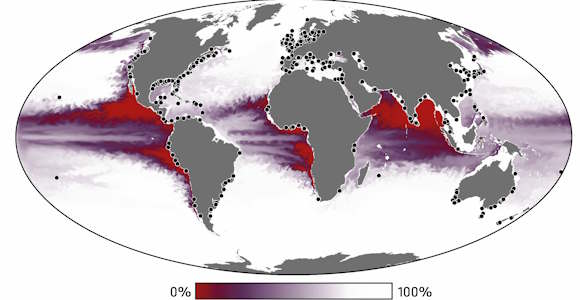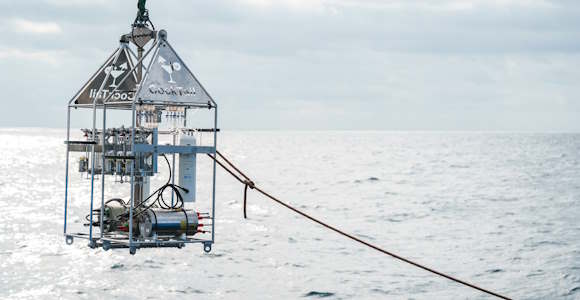
73 Million DKK to Improve Understanding of the Ocean's Nitrogen Cycle and Its Impact on Climate
Professor Bo Thamdrup from the Department of Biology is part of a new international research collaboration that has received approximately 73 million DKK from the EU. This project aims to investigate how large quantities of nitrogen are lost from certain low-oxygen regions in the oceans.
When Danes hear the word "nitrogen," they likely think of the problem with excessive nitrogen in Danish waters. But looking beyond – to the vast oceans – nitrogen in seawater is actually beneficial. It helps the oceans absorb CO₂ and provides essential nutrients for marine life.
This is why researchers are interested in investigating how and why nitrogen disappears in large amounts in certain parts of the ocean.
This process occurs in low-oxygen regions, known as oxygen minimum zones, which, although making up only 0.1% of the ocean's volume, account for around 30% of the nitrogen removal from the oceans.

Microorganisms at play
Microorganisms in seawater are responsible for this process, known as nitrogen loss, transforming nitrogen compounds that algae can use for growth into nitrogen gases that algae cannot utilize. The nitrogen content in the oceans directly influences how much CO₂ the oceans can absorb, a key reason why researchers want to better understand what goes on in these low-oxygen zones.
The new project, “Recycling versus Loss in the Marine Nitrogen Cycle: Controls, Feedbacks, and the Impact of Expanding Low Oxygen Regions” (RECLESS), has received approximately 73 million DKK in support from the European Research Council to study this.
In addition to Bo Thamdrup from SDU, the team includes Laura Bristow from the University of Gothenburg, Katharina Kitzinger from the University of Vienna, and Emily Zakem from the Carnegie Institution for Science in the USA.

Influences CO2 uptake in oceans
Nitrogen serves as a nutrient for algae, forming the basis for algal growth in the oceans. When algae die and sink, they bind carbon and contribute to CO₂ absorption in the oceans.
“When microorganisms in oxygen minimum zones remove nitrogen, less CO₂ is absorbed by the oceans. If these zones expand, it could lead to more nitrogen removal, resulting in less nitrogen for algae and reduced CO₂ absorption. This could potentially amplify the greenhouse effect,” says Bo Thamdrup, adding:
“We don’t yet understand the relationship between oxygen levels and nitrogen turnover precisely enough to predict how this will develop. With this project, we aim to gain a better understanding so we can provide more accurate inputs for climate scientists who assess oceanic CO₂ absorption.”

A mathematical model
The researchers aim to study the microorganisms involved in nitrogen loss in these low-oxygen zones.
“Right now, there are significant gaps in our knowledge about these microorganisms. We need more insights into the environmental factors that determine how these microorganisms thrive or die and how they interact with each other,” says Bo Thamdrup.
The research group aims to create a mathematical model of microbial activity that can predict how deoxygenation in the oceans impacts both the nitrogen and carbon cycles.
Meet the researcher
Professor Bo Thamdrup from the Department of Biology is part of a new international research collaboration that has received approximately 73 million DKK from the EU. This project aims to investigate how large quantities of nitrogen are lost from certain low-oxygen regions in the oceans.